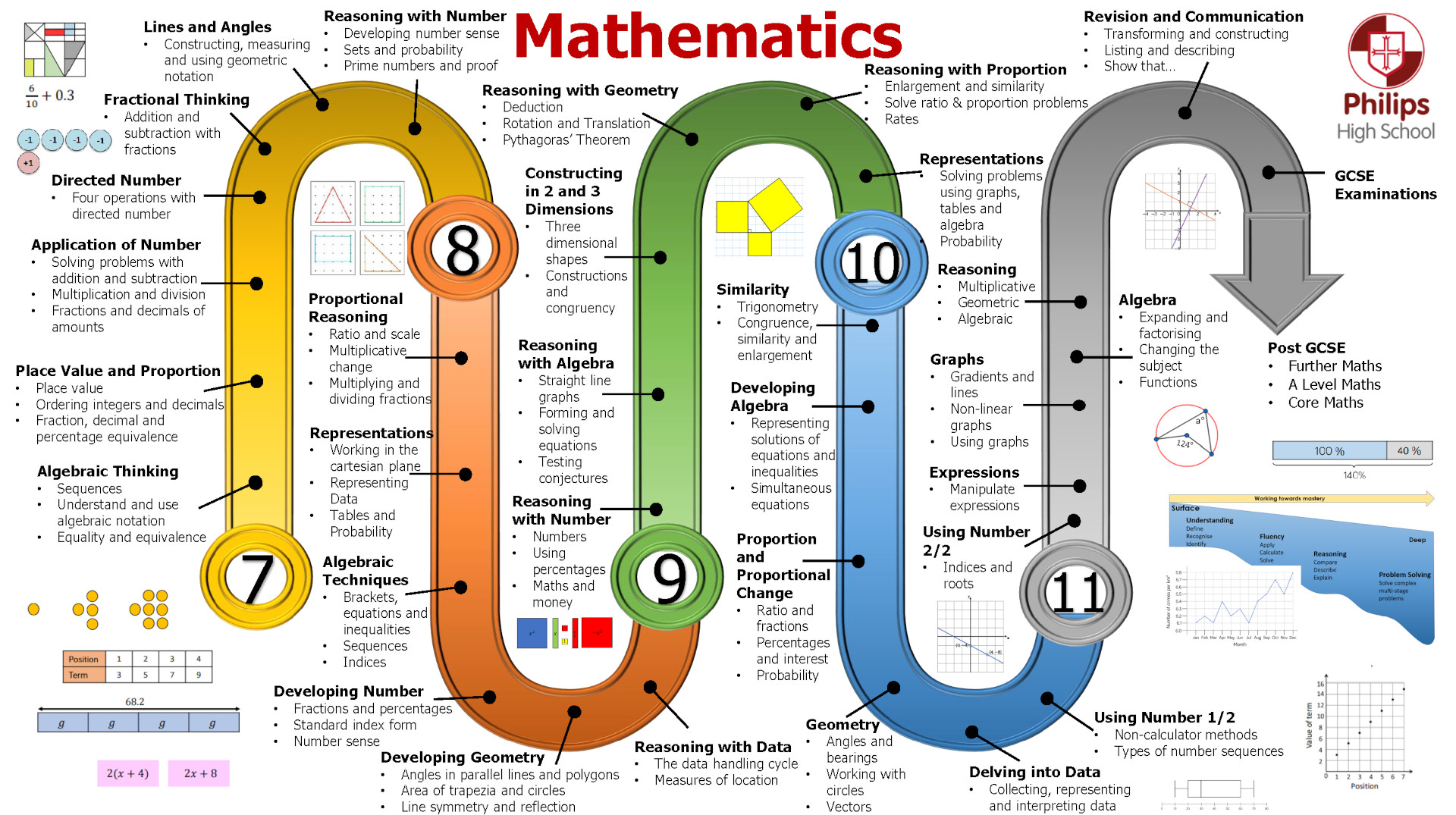Introduction
The department has seven full-time subject specialist mathematics teachers, and one dedicated HLTA (Higher Level Teaching Assistant). We have six subject specific classrooms, with one designated classroom in the SEND hub.
The National Curriculum for mathematics aims to ensure that all students:
- become fluent in the fundamentals of mathematics, including through varied and frequent practice with increasingly complex problems over time, to develop conceptual understanding and the ability to recall and apply knowledge rapidly and accurately
- reason mathematically by following a line of enquiry, conjecturing relationships and generalisations, and developing an argument, justification or proof using mathematical language
- can solve problems by applying their mathematics to a variety of routine and non-routine problems with increasing sophistication, including breaking down problems into a series of simpler steps and persevering in seeking solutions
Curriculum intent
The mathematics curriculum is reviewed, improved and developed every year reflecting evidence-informed research, best practice and the needs of the students. It is designed to deepen students' understanding of core mathematical principles through a mastery approach; which focuses on the “why” of mathematics. The curriculum focuses on developing students in three strands of mathematical thinking – fluency, reasoning and problem solving. Students learn how mathematics underpins many real-world applications, discovering that the key skills and processes learnt in the classroom are used in practical, everyday situations, jobs and their future careers e.g. problem-solving and data analysis.
Our curriculum is planned and sequenced so that new knowledge and skills build on what has been taught before. Opportunities for retrieval are frequent e.g., in starter activities and interleaved knowledge is specifically identified, thus linking topics. Consistent methodologies for key topics ensure students progress through the curriculum with confidence. Students are challenged at all stages in their learning journey and are well-prepared for their GCSE examinations.
Each unit has a mini assessment, called a check up, approximately every two-three weeks; students will receive individual feedback to identify their strengths and any gaps in knowledge. ‘MAD’-time (Make-A-Difference) follows ensuring gaps in knowledge are filled before progressing with the learning journey.
A student's mathematical learning journey is designed to motivate and inspire them through links to the bigger picture which could include, for example, careers, links with other subjects, cultural links, and the achievements of mathematicians from around the world. Students are challenged to think hard and to work independently.
What do students study in mathematics?
Key stage 3 curriculum overview
- Years 7, 8 and 9 have 7 x 1 hour lessons every two weeks.
- Year 7 begins with a knowledge check. It enables us to tailor lessons to students’ ability and identify gaps early.
- White Rose Maths scheme of work, supported by the new 2ndEdition Pearson Edexcel KS3 textbooks, and various established websites.
- Assessments – Unit checks every 2-3 weeks, KATs every term, and summer term examinations.
- Sequences
- Algebraic notations
- Equality and equivalence
- Integers and decimals
- FDP equivalence
- Problems with + and –
- Problems with x and ÷
- Fractions and percentages of amounts
- Directed number
- Fractional thinking, + and –
- Constructing, measuring and using geometrical notation
- Geometrical reasoning
- Prime numbers and proof
- Number sense
- Sets and probability
- Ratio and scales
- Multiplicative change
- Fractions x and ÷
- Working in the Cartesian plane
- Representing data
- Tables and probability
- Brackets, equations and inequalities
- Sequences
- Indices
- Fractions and percentages
- Standard index form
- Number sense
- Angles in parallel lines and polygons
- Area of trapezia and circles
- Symmetry
- The data handling cycle
- Measures of location
- Straight line graphs
- Form and solve equations
- Test conjectures
- 2D and 3D shapes
- Congruence
- Number
- Using percentages
- Maths and money
- Geometry – deduction
- Rotation and translation
- Pythagoras’ theorem
- Enlargement and similarity
- Ratio and proportion
- Rates
- Algebraic representation
- Probability
Key stage 4 curriculum overview
- 4 x 1-hour lessons per week
- White Rose Maths scheme of work, supported by the new 2ndEdition Pearson Edexcel GCSE textbooks, and various established websites (note: current Y11 are following the Pearson SoW)
- Students in years 10 and 11 will sit the Pearson Edexcel GCSE examinations
- There are 3 x 90-minute papers: paper 1 is non-calculator, papers 2 and 3 are with-calculator
- By the time students are in year 11 they will be guided to take exams at either the Foundation Tier (Grades 1-5), or Higher Tier (Grades 4-9)
- Assessments – Unit checks every 2-3 weeks, KATs every term, year 10 summer term examinations, year 11 college predicted grade examinations and year 11 GCSE examinations
- Congruence, similarity and enlargement
- Trigonometry
- Equations and inequalities
- Simultaneous equations
- Angles and bearings
- Circles
- Vectors
- Ratio and fractions
- Percentages and interest
- Probability
- Data
- Non-calculator methods
- Types of number and sequences
- Indices and roots
- Manipulate expressions
- Gradients
- Non-linear graphs
- Using graphs
- Expanding and factorising
- Changing the subject
- Functions
- Multiplicative reasoning
- Geometric reasoning
- Algebraic reasoning
- Transforming and constructing
- Listing and describing
- Show that…
- Revision and examination preparation
Learning journeys




